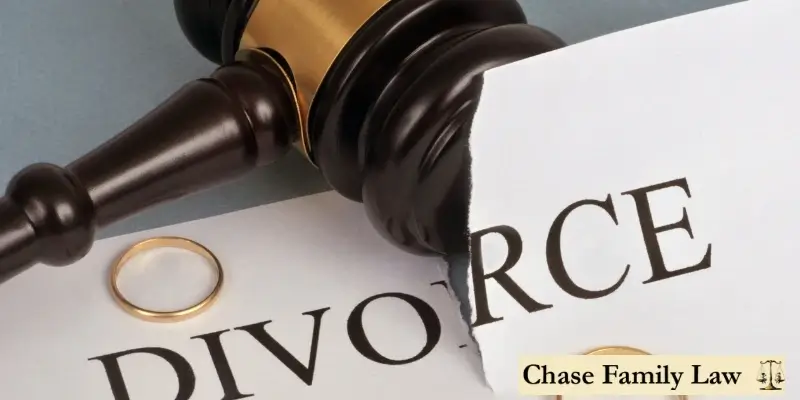Hanford Divorce Lawyer
Hanford Divorce Attorney
Divorce can be one of the most challenging legal battles to face, especially when considering all the potential emotions involved. Regardless of the specific objectives of your divorce, such as securing a favorable custody arrangement or dividing marital assets, having the right legal team in place is crucial to maximizing your success. If you are getting ready to enter a divorce, it’s time to hire a Hanford divorce lawyer.

At Chase Family Law, we understand how challenging divorce cases can be. Our team has supported thousands of divorce cases over more than 30 years, helping us to provide the type of quality legal representation you need. If you are ready to get organized and start moving your divorce case forward, contact our family law firm today for an initial consultation about your legal needs.
Call Chase Family Law
Family Law Made Simple
Dissolution of Marriage
A dissolution of marriage is a court proceeding that terminates a marriage, divides marital property between the husband and wife, and provides for spousal support, child custody, and child support. Dissolution of Marriage is the legal term for a divorce.
No-Fault Divorces in Hanford
California allows no-fault divorces. If one party states that irreconcilable differences have arisen, which have led to the irremediable breakdown of the marriage, and there is no reasonable likelihood that the marriage can be preserved, then a dissolution will be granted. Divorce is granted as a matter of course, even though one party may deny that it is irremediably broken.
Property, Custody, and Support Orders
In conjunction with a dissolution of marriage proceeding, the court may divide the parties’ property and debts, make orders pertaining to the custody of and visitation with the children, if any, and make orders as to child and spousal support when appropriate. However, the parties may obtain a dissolution of marriage without requesting any property, custody, or support orders.
Likewise, the parties may obtain property, custody, and support orders without requesting a dissolution of their marriage. The latter occurs most commonly when the parties seek to separate their lives but wish to remain married either to enable one or both parties to remain insured through the other’s insurance policy or to permit both parties to take advantage of the benefits of filing their taxes jointly.
When segments of a divorce are resolved in this manner, the separate judgments are referred to as bifurcated judgments.
Filing for Divorce in California
In Hanford, a dissolution of marriage is initiated by filing a Summons and Petition with the court in the county in which at least one of the parties has resided for a period of three months immediately preceding the filing. Additionally, at least one party must have been a resident of California for at least six months immediately preceding the filing for divorce.
Once the Summons and Petition are filed and served, California requires a minimum period of six months to pass prior to the termination of the parties’ marriage. Commonly referred to as the waiting period, this time is intended to permit the parties a chance to reflect on their marriage and decision to seek a dissolution.
If the spouses change their minds during the waiting period, the case may be dismissed without consequence. The court does not have the ability to terminate a marriage prior to the expiration of the waiting period, even if both parties agree and jointly request that the court do so. Therefore, parties that wish to terminate their marriage prior to the end of a calendar year must file and serve the Summons and Petition no later than June 30th of that year.
FAQs About Hanford, CA Divorce Laws
How Long Does a Divorce Take in California?
Our Commitment to Family Law
With more than 30 years of experience in family law, Chase Family Law is committed to offering personalized legal services tailored to the unique needs of each client. Our practice focuses on a wide range of family law matters, ensuring that every family receives the attention they deserve. We pride ourselves on our compassionate approach and our dedication to achieving favorable results for our clients.
We strongly believe that every case deserves a comprehensive and thoughtful strategy. This is why we take the time to first get to know our clients and understand their legal and emotional challenges. This helps us to better understand what we can achieve together in the short and long term. At the end of the day, our goal is to help boost our client’s confidence and navigate them through the legal process to ensure their rights are protected at every step.
Get in Touch with Hanford Divorce Lawyer Today
We are here to assist you with your family law needs. Whether you have questions about divorce or any other family law matter, our experienced legal team is ready to help. Contact us today to schedule a consultation.

